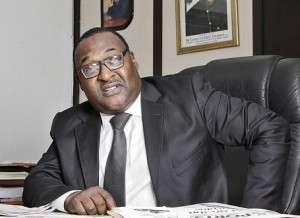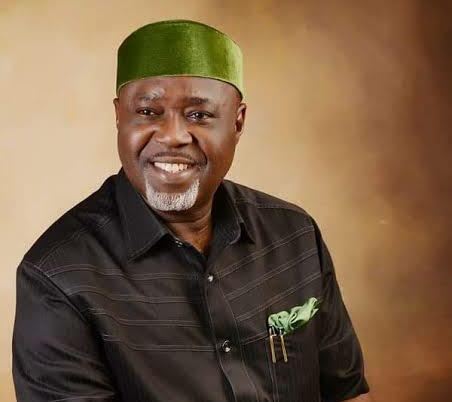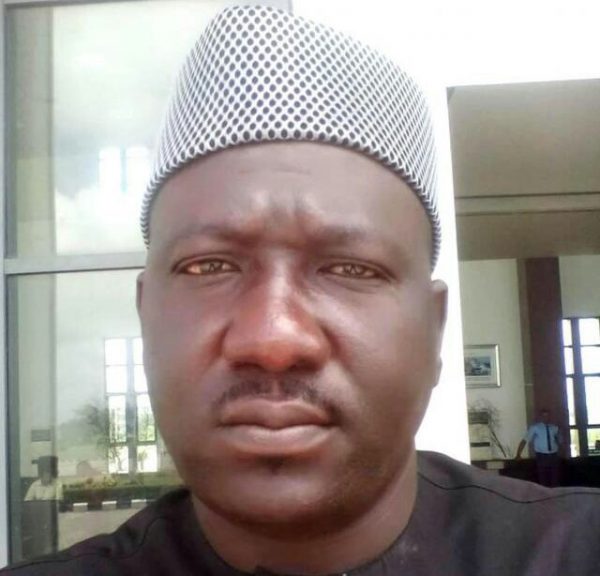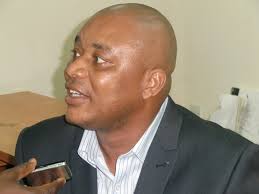What Hassan Bello Told President Jonathan

The assiduity, with which the Nigerian Shippers’ Council (NSC) is desirous to carry out reforms in the Nigerian maritime environment if supported, will yield tremendous turn-around in the sector. It will in no small measure, improve upon revenue generation of the government, increase employment rate as well as tidy up operational processes in the port.
Recently, the Executive Secretary/Chief Executive Officer (ES/CEO) of the Council, Barr. Hassan Bello in a meeting with the Senior Special Assistant (SSA) to the president on maritime matters, Mr. Leke Oyewole, he expatiates the necessities for urgent government intervention in the maritime sector. Enjoy the piece:
Problems in the port
The senior Special Adviser, I have not been counting the days when Shippers’ Council have been appointed the economic regulator but I have seen counting very carefully the achievements of Shippers Council since the appointment was made. The whole issue is for you to be here, to feel at home so that we will let you know what we have been able to do with the mandate that you have given us. You have done a lot for Shippers’ Council and for those of us in Shippers’ Council, we are already aware of your tremendous interventions on so many occasions on the issue of getting licenses for our ICDs, even the recognition as the economic regulator.
Our mandate is clear; despite the reforms of the port about nine years ago; there are still one or two problems. We are still being bugged by the problems of especially cargo dwell time. Our ports have not been competitive to Shippers who import their goods because first, there is high tariff which is not justified by any standard. Secondly, there are cumbersome clearing procedures which are near primitive even the access to the port is limited by one major mode of transportation which is the road. So, our ports are still not friendly, the man hour lost, rickety trucks littering everywhere. When you go to the port, you will see a lot of people in the port which is not supposed to be. That is the mandate of the Nigerian Shippers’ Council.
Need for consultation
We started with a wide consultation because we know that the port system is made up of a chain and each chain must be informed to support the change we intend to carry out. We cannot afford to leave anybody out. There must be that unison, harmony, a kind of consultation, coming together to look at things and solve them together. We had a successful consultation and buy-in to make people agree with what we are going to do as far as our regulatory role is concerned. So, we are open and also democratic; we are not going to take decision alone as a regulator because of that, we have to have dialogue because we are the fathers of all. Now we are the fathers of the terminal operators, we are the fathers of the shipping companies; we are the fathers of the freight forwarders, the truckers, the insurance companies. We are partnering with customs, NDLEA, NPA and other agencies in the port, we all have to supervise, coordinate all these so that we can have smooth working relationship to make the port competitive and efficient.
The government has appointed and we have had a successful acknowledgment from the stakeholders generally. Most of them are happy that this is happening in fact, service providers are happy because we also protect their interest.
Attempted increase in cost of doing business
There have been attempts to increase the cost of doing business in Nigeria which will affect the operations of terminal operators and shipping companies but Nigerians say no you cannot make such increases. Increases must be based on rational thinking of some economic concept and I think that has been accepted now. There cannot be arbitrariness or impunity, there must be somebody you report to otherwise the port will be characterized by so much economic brigandage that you wake up one day and see the cost hijacked without any authorization whatsoever. I think we are not going to have that any longer.
We are also working so hard on standardization and professionalization of all other aspects made up of the freight forwarders. It is very important to have them professionalized, we need to have them stream-lined and we have said there must be consolidation of the freight forwarding industry. We can’t have 1001 freight forwarders carrying brief cases and loitering about at the port doing nothing. We have to professionalize the freight forwarders, make them consolidators of cargoes, strengthen them; those are our aims at the long run because everything has short term, medium and long. We are working with their regulator, CRFFN for screening and training and later, we will come to consolidation. We are thinking of having them in corporates and to avoid individuals but there are lots of legal issues to be made as far as that is concerned.
Traffic management
On the traffic management, we felt as far as it was not our issue to talk about traffic management but because we know that these ports have exceeded their capacities. However, because this is the first port of call, we need to really do something. Shippers’ Council has been working with FERMA and FERCSARA to try to bring solution to the issue of the traffic and I think it has been stable. We are working on the traffic management which is a very important issue. We have also identified holding bays not only for shipping companies but also tank farm operators. As a matter of fact, we are meeting with DPR and other stakeholders, we will identify where these things are, we are going to work towards effective traffic management. The idea is to look at the problem and see how we can solve it.
New port order
In the new port order, that is the new ports that we have in Lekki and Badagry, Nigerian Shippers’ Council must beware of certain things so that the mistake of Apapa will not be repeated and we want the government to be mindful of accesses to these ports. Modern ports must be accessed by rail, road inland water ways and pipelines and these are major modes of transport a modern port must have otherwise we will be repeating or get worse thing that what we have now. So, government must be aware of that and Shippers’ Council has a master plan of how a port should be.
Cost reduction in the port
We are also trying to reduce cost. Nigerian ports are the costliest in Africa therefore they lose their competitive edge. That is why we have people taking their cargoes to other ports and they are excited to do that. Gone are the days when we say Nigerian ports are hubs, we cannot do that, it is a function of competition and that is one of the major tasks of the Nigerian Shippers’ Council to make the ports competitive so that Nigerian ports will be the preferred destination for cargo by importers themselves. If a port in Cotonou will offer you half the charge of Nigeria, if in Cotonou port you will clear your goods in three days instead of twenty one, they will want to cut cost. Here, we have tried to reduce arbitrary charges.
When we did issue our press order as regulator, however I think there has been some misinformation and the shipping companies and terminal operators went to court. I will not go into details of what happened because the issue is still in court. What I want the government to know is that Nigerian economy in other aspects must be regulated otherwise you have chaos. The gap in regulation does not only apply in maritime industry but in all others that is why the political will of the government is very urgent here and we want to send the message through you that the government should appear very serious.
Once an agency is appointed a regulator, it should also see to it the government should see that all necessary administrative power should be given to Shippers’ Council, we have had that but we still want more.
Potentials of the sector
This is a sector that before it was like being abandoned but we have been trying to bring it out and it is even more relevant now with what is happening now with the volatility in the oil business, exchange rate plummeting, the Naira not stable. There is no place you can have a ready-made source or enhanced revenue like the maritime. You can get 3-4 times of what you are getting in oil from maritime if you strengthen out and the contribution of the maritime to the GDP would be colossal in terms of revenue enhancement, in terms of employment content, in terms of modern infrastructure more than ever before because your maritime industry is a reflection of how serious otherwise you are. We have to link the Nigerian economy to the world economy by modern infrastructure.
Harmonization of documentation
We will also harmonize documentation because the process of clearing goods from the port is cumbersome and near primitive. It won’t happen where you have examination over examination, the Nigerian Shippers’ Council has identified all the problems about this process and this is because of our ability to work with many other stakeholders. Let me tell you for example that the Nigerian Customs service has been very cooperative with Nigerian Shippers’ Council. In fact, the customs should be applauded because of the readiness of automation because automation is the answer to all what we have in the port. We are going to identify all the gaps and fill them up.








